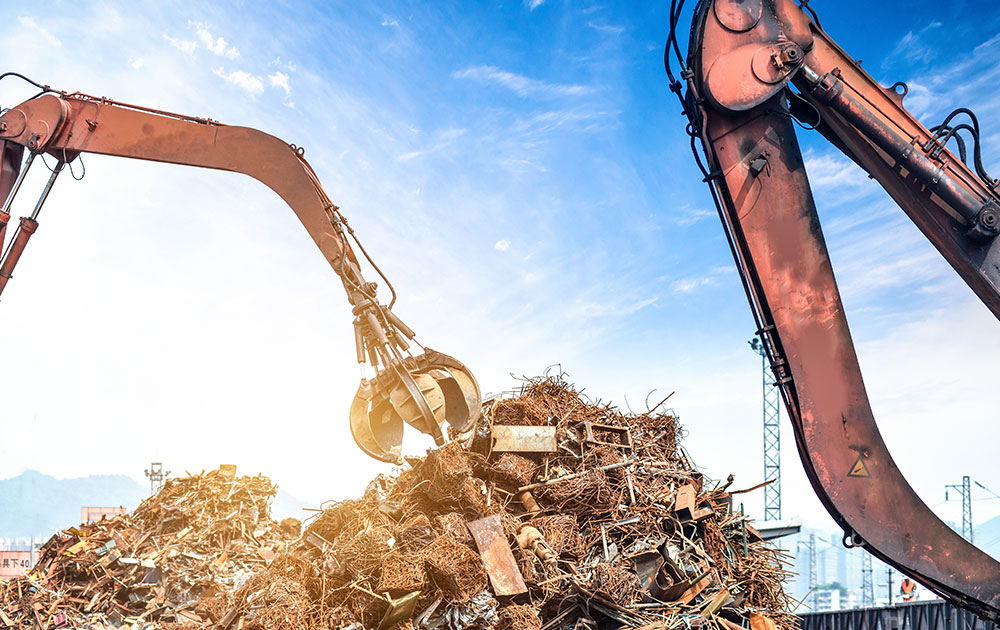Scrap metal recycling plays a vital role in our global push toward sustainability. From reducing environmental impact to conserving resources and fueling economic growth, this often-overlooked process carries immense importance.
Yet, many people are unaware of its true value or how simple participation can make a real-world difference.
In this article, we’ll break down why scrap metal recycling is so important—not just for industries and governments, but for individuals, communities, and our planet.
What Is Scrap Metal Recycling?
Scrap metal recycling is the process of collecting, sorting, processing, and repurposing discarded metal items into raw materials for manufacturing.
Metals such as aluminium, steel, copper, brass, and iron can be melted down and reused repeatedly without degrading their quality.
Unlike many other materials, metals don’t lose their properties through recycling. This makes them an ideal resource for a circular economy, where materials are reused rather than discarded.
Why Scrap Metal Recycling Is So Important: 7 Reasons
1. Reduces Landfill Waste
One of the most visible benefits of scrap metal recycling is waste reduction.
Every year, millions of tonnes of metal items end up in landfills—appliances, car parts, tools, building materials, and even food cans.
When left in landfills, metals can take hundreds of years to break down, all while releasing harmful substances into the soil and groundwater.
Recycling diverts this waste, reduces landfill overuse, and lessens the demand for new landfills.
Example: Recycling just one tonne of steel saves over 1,100 kg of iron ore, 630 kg of coal, and 55 kg of limestone—while also avoiding the space it would have occupied in a landfill.
2. Conserves Natural Resources
Metal production relies on mining raw materials like bauxite (for aluminium), iron ore (for steel), and chalcopyrite (for copper). These mining processes are not only energy-intensive but also cause serious ecological damage, including deforestation, habitat destruction, and groundwater pollution.
Recycling metals means less need for mining and extraction of finite natural resources.
By choosing to recycle, we conserve raw materials for future generations and help protect ecosystems from irreversible damage.
3. Saves Energy and Reduces Emissions
Mining, refining, and processing metal from ore requires immense amounts of energy.
Recycling, by contrast, uses much less. Here are some stark comparisons:
- Aluminium recycling saves 95% of the energy needed to produce it from bauxite.
- Copper recycling saves about 85%.
- Steel recycling saves around 60–74% of the energy.
According to the U.S. Environmental Protection Agency (EPA), recycling metals significantly reduces carbon dioxide emissions, helping to slow down climate change.
For businesses and industries, it also means reduced operational costs—a win-win for the planet and the economy.
4. Supports the Economy and Job Creation
The scrap metal recycling industry is a major economic contributor.
In the United States alone, it generates over $110 billion annually and employs more than 500,000 people, from scrap yard operators to logistics professionals and metallurgists.
Recycling creates jobs across a wide range of skill levels.
It also supports local economies by turning waste into valuable raw materials that are used by manufacturing plants, construction companies, and even tech firms.
Fact: Every 10,000 tonnes of waste recycled creates 36 jobs, while landfilling the same amount creates only 6.
5. Preserves Manufacturing Supply Chains
Global disruptions—like the COVID-19 pandemic or geopolitical conflicts—have exposed how vulnerable many industries are to raw material shortages.
Recycling scrap metal helps stabilize supply chains by providing a consistent, local source of essential materials.
Industries that rely on recycled metals include:
- Automotive manufacturing
- Construction and infrastructure
- Electronics and appliances
- Aerospace and defense
Having access to recycled metals makes these sectors more resilient and less dependent on imports or volatile global markets.
6. Promotes Responsible Consumption
Recycling scrap metal encourages both individuals and businesses to think about the life cycle of their products.
When people realize that an old appliance or a broken chair has recyclable value, they become more conscious of consumption patterns.
This shift fosters a culture of sustainability and accountability.
By properly disposing of scrap metal, consumers contribute to a circular economy where waste is viewed as a resource—not a burden.
7. Encourages Technological Innovation
The scrap metal recycling industry is constantly evolving. From AI-powered sorting machines to robotic disassemblers, technology is making recycling faster, cleaner, and more efficient.
Innovations are also helping detect metal purity, enabling better material recovery and less contamination.
These technologies reduce labor costs, improve accuracy, and increase overall recycling rates.
Investments in such innovations not only improve recycling outcomes but also push the broader environmental tech sector forward.
Common Scrap Metals That Should Be Recycled
| Metal | Where You’ll Find It | Recyclable? |
| Aluminium | Soda cans, window frames, bike parts | ✅ Yes |
| Copper | Wiring, pipes, electronics | ✅ Yes |
| Steel | Tools, appliances, vehicles | ✅ Yes |
| Brass | Plumbing fixtures, keys, musical instruments | ✅ Yes |
| Iron | Machinery, auto parts | ✅ Yes |
Even small items like nails, screws, and bottle caps can be collected and recycled when aggregated.
How You Can Start Recycling Scrap Metal?
Recycling scrap metal is easier than many think. Here’s how to get started:
- Identify recyclable metals at home—look for non-magnetic, heavy materials.
- Separate metals by type (aluminium, copper, etc.) for better processing.
- Locate a certified recycling center near you.
- Ensure items are clean—free from plastic, wood, or excessive rust.
- Earn money—many centers offer cash for certain types of scrap metal.
Even contributing a few kilograms of clean scrap every month can have a meaningful impact.
Conclusion
Scrap metal recycling is not just about salvaging old parts—it’s about shaping a sustainable future.
From preserving the planet’s resources to boosting local economies, the benefits are clear and far-reaching.
Whether you are a homeowner clearing out your garage or a business managing industrial waste, participating in scrap metal recycling is a powerful step toward environmental responsibility.
Recycling today ensures a better tomorrow—both economically and ecologically.
